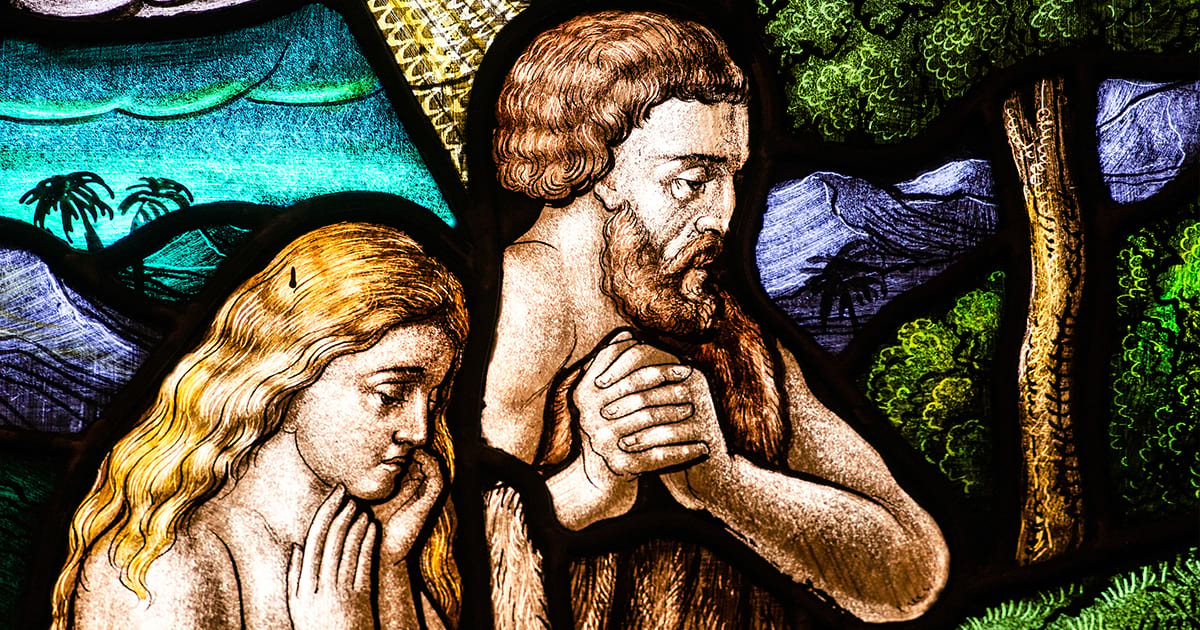
By Matthew C. Harrison
Did you ever catch the Canadian program, “The Red Green Show” on PBS? It was a comedy about a television handyman (Red Green) whose onscreen repairs often don’t go well, usually because of his own mistakes. A recurring feature of the show was the “man’s prayer”: “I’m a man, but I can change, if I have to, I guess.” Sure, it was funny. But in its repeated negative depiction of men, maybe it contributed to the ongoing subversion of masculinity by contemporary culture.
Young men today, especially those outside the church, have grown up with a distorted view of masculinity. Too many of the motion pictures and television sitcoms they watched depicted fathers — if they were even around — as buffoons, while the ads sold the trope of the dumb dad. Meanwhile, many of their mothers probably had [feminist activist] Betty Friedan’s books on the shelf, while their sisters sported “anything boys can do, girls can do better” T-shirts and aspired to be like Mulan, Merida or Moana. These young men have grown up breathing the poisoned air of a radically feminist culture. Masculinity is toxic, they’re told, which seems obvious to anyone raised on this steady diet of pop culture.
Enter Jordan Peterson. Or Joe Rogan. Or anyone with the common sense to say that there’s something good about being a man — that men should embrace their masculine distinctiveness or that being a man is not a punchline. If we’re surprised that young men today are attracted to figures like these, the joke’s on us. If we fail to recognize and encourage biblical masculinity in the church, we shouldn’t be surprised when young men seek out unbiblical and sometimes harmful caricatures of masculinity.
On the sixth day, having crowned His creation with the man and the woman, God upgraded His assessment of His handiwork from “good” to “very good.” God wasn’t despising women when He made Adam to be head and Eve to be helper. Nor was He scorning men when He gave to women the distinct and beautiful capacity to nurture and sustain life with their own bodies. The differences between men and women are not something to apologize for but to celebrate. One common humanity comprises two distinct sexes; male and female He created them.
Though the Fall has distorted the perfection of Eden, making burdens of man’s sacrifice and the woman’s receptiveness, Christ, who is the image of God (Col. 1:15), restores our broken humanity. In Christ, women are free to be women, and men are free to be men. “For you were called to freedom, brothers. Only do not use your freedom as an opportunity for the flesh, but through love serve one another” (Gal. 5:13). Our sisters and daughters need to know that femininity is good for them and of service to their neighbors. Our brothers and sons need to know that masculinity is likewise good for them and of service to their neighbors.
The complementary natures of men and women compose a kind of living sermon. Having held up Christ as the example for husbands, and the church as the example for wives, St. Paul says: “This mystery is profound, and I am saying that it refers to Christ and the church” (Eph. 5:32). Every marriage preaches the greater reality of Christ and His bride, the church.
When Adam woke from his deep sleep, he spoke the first recorded words of mankind, “This at last is bone of my bones and flesh of my flesh; she shall be called Woman, because she was taken out of Man” (Gen. 2:23). Adam and Eve had common bone and flesh, yet complementary roles and body parts. The man does what the woman cannot; she does what he cannot. Together they are more — much more — than Adam was alone.
I hope and pray we’re on the precipice of a cultural watershed moment. Girls won’t put up with competing against biological boys in sports for long. Young men are gravitating to churches that hold to the beauty and goodness of biblical complementarity. What we believe and confess is not only true, but also good for human beings. Our young men and women are hungry for what the Bible teaches about men and women, the full and rich beauty of our Lord’s creation. They’re tired of the dull, gray sameness of egalitarianism.
As I write this, the LCMS Office of National Mission, together with the Recognized Service Organization DOXOLOGY, is hosting a conference titled “Created Male and Female: In His Image.” Topics include pastoral care and spiritual support for those whose children identify as transgender, those who suffer with LGBT-related temptations, and families of those who have same-sex attraction. These are real issues, faced by real people in our own churches and families. The church, while upholding God’s design for creation, doesn’t turn its back on those struggling under the attacks of the devil, the world and their own sinful natures. We continue, as your church body, to look for ways we can provide support and care and to develop resources to help.
So, also, does Concordia Publishing House. For practical advice and real, biblical hope regarding God’s design for the sexes, check out three resources: the new book, (Dis)ordered: Lies about Human Nature and the Truth that Sets us Free, by my friend and LCMS Fifth Vice-President Rev. Christopher Esget; Man Up: The Quest for Masculinity by the Rev. Jeffrey Hemmer; and LadyLike: Living Biblically by Rebekah Curtis and Deaconess Rose Adle.
The Rev. Dr. Matthew C. Harrison is president of The Lutheran Church—Missouri Synod.
Posted May 1, 2024